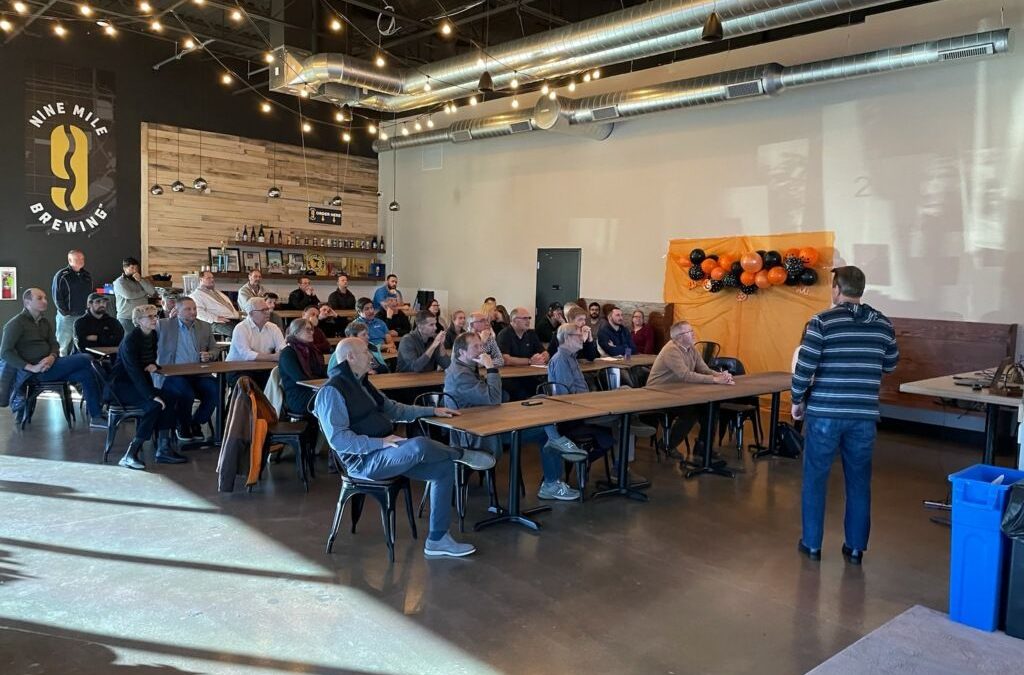FOR IMMEDIATE RELEASE <<<
Q&A with Winsted CEO Tracy Crocker

In October, Winsted hosted a Sales Summit for its sales representatives from all around the world at its Minneapolis headquarters. Winsted CEO Tracy Crocker offered some thoughts on the Summit and shared what’s around the corner for the company.
Q: Tell us about the purpose of the summit.
TRACY CROCKER: Sure. We called it the Sales Summit and while the sales team is certainly the tip of the spear, the Summit was really about the entire spear. It was about new products. It was about customer engagement but ultimately it was about winning as a team. Which in a project-based business like ours includes the entire team from Product Development to Project Design to Order fulfillment to Credit to Logistics. Everyone has a role to play in our sales process.
And now our sales team will go out in the marketplace implementing those processes, having learned how to recognize what we call “moments of truth” — where they get a customer who’s interested in Winsted and we convert them to be their company of choice. At the Summit, we put all that together, with the hope that everybody would walk out locking arms and understanding what we need to do in the marketplace. And I think we accomplished that.
Q: How would you describe your strategy for making those conversions?
TRACY CROCKER: Well, it really goes back to where we’re going as a company. Winsted began and became a success as a regional company reacting to opportunities in the marketplace. Now, we are transforming into a global company that proactively identifies early-stage projects and brings customers all our product and design expertise. By being proactive, we’re able to work with decision-makers sometimes a year or two in advance of the actual project. So we saw the Summit as a step in our company making that transformation and knowing that we needed to have these core processes to support that change.
Q: What are your ultimate goals?
TRACY CROCKER: We want to be best in class with our product and how we engage customers in projects. We want them to meet our design team, go through our 3D process and discover the design they want, see what we deliver, and kind of walk away saying, “Wow — that was a really great experience and I’m getting a customized control room.”
We want them to feel it’s more than just technical furniture, it’s that we’re bringing them ALL the things that they need. This includes making sure that their control room is productive, that their operators are healthy. We give them all that.
But what’s coming in the future is really enhancing that experience with what we’re calling order fulfillment. This is a step in the process where after getting the P.O. we proactively begin scheduling the delivery, the assembly, and performing the actual installation, we have a follow-up to make sure it’s operating the way it should. We’ll come back and visit our installs, providing warranty service, providing any other kind of updates or changes that would be part of our warranty. So that’s coming soon, as they say.
Q: The nature of the work your customers do is very significant. What kind of a role do you think your products play in that work?
TRACY CROCKER: We look at it this way. We don’t just build technical furniture, we design rooms. Part of that design is customizing the furniture so there’s optimal traffic flow. But many elements go beyond furniture. In a high-intensity situational awareness environment, people have to get in and get out. Sightlines are really important. Ergonomics, the health of the operator. Cable management, so there’s no trip hazards. We’re doing things with raised floors so the cables are never seen but always working. Everything is easy access. Easy updates when technology changes. Our products and services have a major role to play.
I like to say we keep the world running when and where it matters most. That may sound like hyperbole , but we’re in major nuclear power facilities and utility companies across the world. They’re 24/7 environments. If our designs are keeping the people who run those control rooms alert and productive, then that is an important role to play. We really enhance the technology of those environments and make that technology work. It’s the same when you think about that in a PSAP or a 911 dispatch room or a command control room in a military facility. We make security control rooms in places that NEED to be secure. Our customers’ jobs are critical to what’s happening in the world and we’re part of that, sure.
People say, “You guys must sleep pretty well at night,” and I say, “Well, we’re trying to make sure that the whole world sleeps well at night.”

